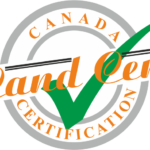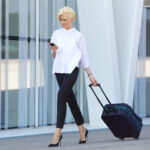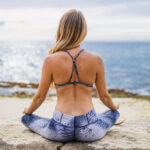Introducing Cameroon
About Cameroon
While referring to Cameroon as “Africa in miniature” has become a bit of a cliche, this statement certainly rings true: everything you would expect from the African continent seems to be consolidated here, in this enticing and eclectic land.
The beautiful south is characterized by tropical rainforests and deserted golden beaches, which would be chock full of bathers in a more developed destination. There’s a hearty appetite for independence in the English-speaking south, but, despite the best efforts of local pressure groups, it has yet to break free from the rest of the country.
In contrast to the south, the dramatic landscapes of northern Cameroon are dominated by great expanses of desert, lakes and savannah. Traditional villages still cling on in this unforgiving land, which is perhaps the most culturally diverse region in Cameroon, home as it is to some 50 ethnic groups. Though largely peaceful, the region has been rocked by attacks from extremists in recent years. Keep abreast of the latest news.
Pack your hiking gear if you’re heading to western Cameroon, which is dominated by volcanic mountains. Looking out across these rugged ranges you could be forgiven for thinking you were on Mars, such is their otherworldly appearance. Its not all about the landscapes, though. Scattered across the country are a handful of game reserves, which offer ample opportunity to observe impressive wildlife, including elephants and lions.
Cameroon really should be one of Africa’s leading destinations, but poverty blights much of its infrastructure, meaning transport and accommodation are chronically underdeveloped. Outstanding border disputes haven’t helped, either-travellers are advised to steer clear of the frontiers with Nigeria, Chad and the Central African Republic, which are considered unstable.
Aside from certain no-go areas, Cameroon has much to offer adventurous travellers. From its verdant rainforests to its iconic wildlife, the country is bursting with life. Go and you shall be handsomely rewarded.
LANGUAGE, CULTURE & HISTORY
History of Cameroon
In the first century, the two people settled around Lake Chad and it is from them that much of the country’s remarkable sculpture originates.
Present-day Cameroon was at the heartland of an area that extended into Nigeria, under the control of the Duala people. An estimated 200 distinct ethnic groups five in the region, the largest of which is the Bamileke, a tribe occupying the west and centre of the ca untry.
Equatorial Bantu five in the area between the Congo basin and the plateaux of the interior, while small hunting bands of pygmies dwell in the remote southern forests.
The Portuguese arrived in the 15th century; later, in the 18800, the area became a German protectorate. But after Germany’s defeat in World War 1, Cameroon was divided between Britain and France.
French Cameroon achieved independence in 1957, under the control of the principal pro-independence party, the Union National Camerounaise (UNC). In 1961, the Northern provinces voted to become part of Nigeria, while the south opted for union with French Cameroon. A centralized political and administrative system was introduced with the veteran northern politician, Ahmadou Ahidjo, as President.
In 1975, Paul Biya became Prime Minister and when Ahidjo stepped down in 1982, he was succeeded by Biya who as head of the UNC and its successor party, the Rassemblement Dernocratique du Peuple Camerounais (RDPC), Biya has since achieved complete political domination over Cameroon.
In recent years Cameroon’s English-speaking territories have become increasingly isolated from Biya’s government with some politicians from these regions calling for greater devolution, even secession. However, the country is generally quite stable in social and political terms, allowing the development of infrastructure and industry.
Cameroon joined the Commonwealth in 1995 and the UN Security Council in 2002, as one of three African representatives (with Angola and Guinea). It is also a member of la Francophonie. Its record on human rights is considered flawed but has been generally improving.
Did you know?
o The two most popular types of music in Cameroon are makossa, a blend of highlife, soul, folk and Congo music; and bikutsi, the dance music of the Ewondo people heard of Paul Simon’s 1990 album, The Rhythm of the Saints.
o Although French and English are the official languages, Cameroon his home to some 1738 language groups.
O in May 2014, following the Chibok schoolgirl kidnapping, Cameroon joined Chad in declaring war on the Boko Haram and deployed troops on the border with Nigeria.
Cameroon Culture
Religion in Cameroon
The majority of the population hold Christian (mainly Roman Catholic) or traditional animist beliefs. The sizeable remainder are followers of Islam.
Social Conventions in Cameroon
Handshaking is the customary form of greeting. In the north, where the population is largely Muslim, Islamic traditions should be respected. Visitors should never step inside a Muslim prayer circle of rocks. In other rural areas, where traditional beliefs predominate, it is essential to use tact
Photography: Cameras should be used with discretion, particularly in rural areas. Always ask permission before taking a photograph. Do not photograph airports, military establishments, official buildings, or military personnel in uniform.
Language in Cameroon
The official languages are French and English. They are given equal importance in the constitution, but French is the more commonly spoken. Pidgin English is widely spoken, particularly in coastal areas, and Spanish is spoken in some urban centres. More than 200 different African languages are also spoken in the country.
GROGRAPHY & WEATHER
Weather and climate
Best time to visit
The south is hot and dry November-February. The main rainy season is June-October. Temperatures in the north vary. On the Adamaoua Plateau, temperatures drop sharply at night the rainy season is May-October. Grassland areas inland are much cooler than the coast with regular rainfall. The best months to visit are January- April.
Required clothing
Lightweight cotton clothes, canvas or light leather shoes or sandals. Waterproofs are advised for coastal areas.
Geography
Situated on the west coast of Africa, Cameroon is bordered to the west by the Gulf of Guinea, to the northwest by Nigeria, to the northeast by Chad (with Lake Chad at its northern tip), to the east by the Central African Republic and to the south by Congo-Brazzaville (Republic of the Congo), Gabon and Equatorial Guinea.
The for north of the country is a semi-desert broadening into the vast Maroua Plain, with game reserves and mineral deposits. This is bordered to the west by the lush Mandara Mountains; the Benue River rises here and flows westwards into the Niger.
The country to the northwest is particularly striking: volcanic peaks covered by bamboo forest rise to over 2,000m (6,500ft), with waterfalls and villages scattered over the lower slopes. Further to the south and west are savannah uplands, while dense forest covers the east and south. The highest peak, at 4,095m (13,434ft) is Mount Cameroon, which lies close to the coast The humid coastal strip is tropical, with a mixture of rainforest and farmland.
The River Wouri, which flows southwest into the Gulf of Guinea, inspired the countrys name after 15th-century Portuguese sailor Fernando Po’s spoke of the Rio dos Cameroes (river of shrimps).
BUSINESS OPPORTUNITIES
Doing Business in Cameroon
Office Hours
Mon-Fri 0730-1800.
Government office hours: Mon-Fri 0730-1530.
Economy
Because of consistent agricultural performance and the growth of its modest oil industry, Cameroon has enjoyed broad economic success since independence, although it is vulnerable to changes in world commodity prices.
The main agricultural products are cocoa, coffee, palm oil, wood and rubber. There are some offshore oil deposits, and sizeable but largely unexploited deposits of iron ore, copper, uranium and other metals. Hydro-electric projects supply most of the country’s energy, while oil and gas are largely exported.
During the 19900, the government opened up much of the economy to competition. Since then, an IMF structural adjustment programme has set the ground rules for the country’s economic policy. Cameroon became eligible for debt relief under the Heavily Indebted Poor Countries Initiative (HIPC) in 2000, which meant significant relief from debt upon completion in 2006. Since 2002, Douala has hosted one of sub-Saharan Africa’s few stock exchanges.
The main hindrances to Cameroon’s further economic development include corruption, inefficiency and an excess of red tape. The IMF continues to press for reform in all these areas, and for privatization of key institutions and services, as a means to poverty reduction.
GDP
US$22 billion (2010 est.).
Main exports
Crude oil and petroleum products, Umber, cocoa, cotton, aluminum and coffee.
Main imports
Machinery, electrical and transport equipment, and food products.
Main trading partners
France, Italy, Nigeria, Spain, China.
Keeping in Touch in Cameroon
Telephone
International calls can be made from Camtel offices. Telephones can usually be found in post offices and restaurants, and there are telephone booths in the towns. Phone cards are available. The phone service is often unreliable.
Mobile Phone
Roaming agreements exist with a number of international mobile phone companies. Coverage is patchy but better in the south.
Internet
Main towns will have Internet cafes. Charges are significantly higher outside Yaounde and Douala. The service is often slow and unreliable.
Media
Media is highly government controlled. However, a general liberalization of media in 2000 led to Cameroon’s first private TV station, TV Max, being launched in 2001, with a spate of others quick to follow.
Nevertheless, libel laws inhibit journalists and some have even been jailed in the past. This is regarded as a genuine problem by the international community, who believe that Cameroon is becoming one of the most repressive countries worldwide in regards to freedom of expression.
Post
Stamps can only be obtained from post offices. Mail usually takes at least a week to reach Europe.
Post Office hours Mon-Fri 0730-1530.
Plan your trip
HERE’S JOURNEY
Flying to Cameroon
There are no direct flights to Cameroon from the UK or USA. Options include flights with Air France (www.airfrance.com) via Pads, Brussels Airlines (www.brusselsairlines.com) via Brussels, or Royal Air Maroc (www.royalairmaroc.com) via Casablanca.
Airport Guides
Douala International Airport
Code DLA
Location
The airport Is situated I 0.1 (6 miles) southeast of the city. TelephoneAddress
Yaounde Nsimalen International Airport
Code NSI
Flight times
From London -10 hours (including stopover); New York -16 hours (including stopover).
Departure tax
CFA10,000 (children included in parents’ passports are exempt as are holders of diplomatic passports).
Travelling to Cameroon by Rail
There are no international rail services from Cameroon to neighbouring countries due to the different line gauges.
Driving to Cameroon
Getting to Cameroon by boat
Cargo boats from Douala to Malabo (Equatorial Guinea) sometimes accept passengers. Speedboats and cargo boats ply the coastal route between ldendao (northern Cameroon) and Oron (Nigeria). However, these services are not regulated.
Ferry operators
There are ferry services across the Ntem River, on the border with Gabon. Pirogues also operate across this river to Equatorial Guinea.
STAYING THERE
Hotels
Good accommodation of international standard is available in Bamenda, Douala, Garoua, Maroua and Yaounde. Cheaper accommodation, catering principally for local travellers, is available in every town. Rates quoted by hotels and lodges are generally for the room rather than per person.
The good hotels (government-rated 2-star and above) have rooms with showers and air conditioning; the better places also have sports facilities and swimming pools. Prices in Douala and Yaounde are rather high. Some large hotels will accept major credit cards. Hotel facilities are in heavy demand; it is advisable to book in advance and obtain
Written confirmation of your booking.
Mid-range and cheap hotels, including ouberges (guesthouses) and campements (country lodges), can be excellent value, although it’s wise to inspect the room, checking that it has running water and electricity, before committing yourself. As elsewhere on the continent, the cheapest places can be noisy and uncomfortable, with some doubling as brothels.
Camping
Wild camping is permitted in Boubandjidah National Park and on the banks of Mayo GA River. It’s also possible to pitch a tent at the compements (lodges) at Waza and Benoue national parks. Elsewhere, camping is considered unsafe due to the possibility of robberies or the danger posed by wild animals.
Other accommodation
Accommodation for the popular Waza and Benoue national parks, in the far north of the country, is available in rustic but comfortable boukarous (roundhouses) at their rompements (lodges), located just outside Ware, near the entrance, and inside Benoue, on the riverbank.
While you’re there
PLACES TO SEE & DO THEIR
Attractions in Cameroon
Drive through the central highlands
Hop in a 4-wheel drive and explore the splendid scenery of the central highlands. Starting in Douala, the drive to Nkongsamba rises to reveal vibrant verdant valleys and breath-taking waterfalls. As dusk falls, ready the camera to capture the striking orange and purple skylines.
Find colonial architecture in Foumban
In this culture-rich town, discover many traditional buildings dating from Cameroon’s period of German colonisation. Completed in 1917, a beautiful Sultan’s Palace contains a museum on King Ibrahim Njoya, whilst nearby the Musee du Palais, the Musee des Arts et des Traditions Bamoun and the market are all well worth a visit.
Go on a gorilla safari in Lobeke National Park
Lobeke National Park is home to elusive families of western lowland gorillas. For the best chance of viewing these graceful giants, visitors can spend the night in a specially built watchtower. Equally exciting but easier to spot are elephants, buffalo and the giant forest hog, though visitors should keep their eyes peeled for red river hogs and bongo antelope.
Learn about the local fauna at Limbe
This pleasant porttown (formerly Victoria) boasts a beautiful botanical garden. Founded in 1892 by Cameroon’s German colonisers, the gardens were originally set up coffee, cocoa and rubber. to trial exotic crops such as Today, conservation is at the heart of the scent-filled gardens, which offer trails and insights into Cameroonian botanic culture.
Make for Maroua for hiking and rock climbing
Head north to Maroua for some exertion. Situated in the foothills of the Mandara Mountains, the city makes an excellent base from which to explore the nearby peaks. Lower reaches offer moderate hiking trails and fine views whilst Le Dent de Mindif, south of the city, is a highly regarded rock climbing spot.
Reserve some time for nature spotting
Head to Cameroon’s northern reaches to see monkeys, snuffling warthogs and an abundance of antelope in the Kalamaloue Reserve. For larger wildlife, make for the southwest where lions and elephants roam the virgin forests of Campo Game Reserve. Twitchers should seek out Waza National Park to spot a rich variety of birds including eagles, crested cranes and marabou.
Scale an active volcano
At 4,095m (13,435ft) Mount Cameroon is the highest mountain in West Africa and Africa’s highest active volcano, making it a popular destination for mountaineers. Make your base Buea, a pretty colonial town complete with Cameroon’s first post office. From here, the climb takes three to four days.
Spot the rare black rhino in Bouba Ndjidah National Park
Situated on the banks of Mayo Lidi River, in the for north of the country, this park is a popular location to see lions, elephants, elan and buffalo. Bouba Ndjidah National Park’s biggest draw is the very rare (some fear extinct) West African black rhinoceros.
Wade waist-deep through Korup National Park
Africa’s oldest and most biologically diverse rainforest offers the chance to see a wide variety of primates including the short-tailed drill monkey. Ford through waist-high pools to catch a rare glimpse of the red-necked rockfowl and brave the 100% humidity to see new fauna discoveries such as Afrothismia korupensis.
Wander the hills of Yaounde
Straddling seven hills, Cameroon’s bustling capital is pleasantly green. On top of Mont Febe sits the Benedictine Monastery’s Musee d’Art Cameroonais, which houses traditional arts and crafts including an enviable collection of masks. The newer National Museum of Yaounde is also worthy of a visit. Make the most of the exhibitions with a guided tour.
Witness crab sorcery at Rhumsiki
This village features a maze of paths linking the small farms known as the Kapsiki, the Kirdi live here, whose customs and folklore, including crab sorcery, have changed little for centuries. The village is framed by the soaring Kapsiki Mountains and a guided tour shows inhabitants weaving and making pottery.
Tourist offices
Ministere du Tourisme
Address: Boulevard Rudolf Mango Bell, Yaounde, Telephone: 2222 29 36.
NIGHTLIFE & SHOPPING
Shopping in Cameroon
Local handicrafts include highly decorated pots, drinking horns, jugs, bottles and cups, wood carvings, great earthenware bowls and delicate pottery, dishes and trays, mats and rugs woven from grass, raffia, jewellery and camel hair, cotton and beadwork garments. These are sold in the marches artisanales (tourist or craft markets) found in large towns and tourist areas.
Some stallholders offer items which they describe as antique: in many cases they’re merely distressed. Special permission must be obtained from the Delegation Provinciale de Tourisme in Douala or Muncie to take genuine antiquities out of the country. The main markets in most towns sell fresh produce, cheap clothing and household essentials rather than souvenirs, but can be good places to find African-style printed cotton fabric.
Shopping hours
Mon-Sat 0730-1800.
Nightlife in Cameroon
In Douala and Vaounde particularly, nightclubs and casinos can be found independently or within most good hotels. Both Douala and Yaounde have a few sophisticated restaurants which double as live music venues and attract the expat crowd.
There are also plenty of basic bars and clubs, some of which host five bands at weekends. The music on offer varies from local sounds to reggae, rap and rock. There are no licensing hours, and hotel bars stay open as long as there is custom. Every large town also has at least one cinema.
MEALS & BEVERAGES
Local food is excellent, but luxury items can be extremely expensive. There are many restaurants in big towns and cities, with good service. Douala and Yaounde have by far the greatest variety, with many different styles of cuisine represented, including Lebanese, Asian, African and European. Cheap and tasty Cameroonian food is served in thantiers and chop houses. The coastal area offers excellent fresh fish and prawns. Most international hotels have bars.
Specialities
- Emilie (manioc leaves).
- West African peanut soup.
- Banana bread.
- Zom (spinach with meat).
- Fried sweet potatoes or plantains.
- Beef with pineapple or coconut.
Things to know
Although vegetarianism is rare in Cameroon, it is possible for to get by on egg dishes, vegetables, pizza, bread and tropical fruit Many dishes are served with rice, couscous, mashed manioc or chips made from potato, yam or plantain.
Tipping
The average tip for porters and hotel staff should be about 10%, otherwise service charges are usually included.
Drinking age
18.
Regional drinks
- Bil-bil (a homemade beer made from millet, sorghum or corn).
- Palm wine.
- Al* (a firewater distilled from palm sap).
- Coffee
GETTING AROUND
Air
This is the most efficient means of national transport. Camair-Co (www.camairco.cm) runs services to a number of destinations within Cameroon including Douala, Yaounde, Garoua and Maroua. You can also arrange prNate charter jets.
Departure tax
CFASOO.
Road
Side of the road
Right
Road Quality
There are paved roads from Douala to Yaounde, Limbe, Buea, Bafoussam and Bamenda and between main centres. Other roads are generally poorly maintained and become almost impassable during the rainy season. Many vehicles are poorly lit and badly driven. Night driving is not recommended.
Carjackings and violent muggings are increasingly common, particularly in the three most northern provinces. Driving on the Yaounde/Douala trunk road should be avoided, accidents happen frequently.
Car Hire
This is expensive and limited to Douala, Yaounde and Limbe. Cars are available with or without a driver. Roadside assistance is non-existent.
Documentation
You can dive on your own national license when you first arrive, but need to obtain a Cameroonian license from the Delegation of Transport as soon as you can.
Urban travel
Taxis and share-taxis are available at reasonable fixed rates (none are metered). A1096 Op is optional. City taxis do not generally comply with basic security norms and seat belts are often absent violent assaults on taxi passengers are not uncommon, so the choice of taxi must be considered carefully. However, they are cheap and fast
Petty theft is common on trains, coaches and bush-taxis, and visitors to Cameroon who rely on public transport are urged to remain vigilant.
Rail
Camrail (www.camrail.net) is the national service provider. Services are good, if relatively slow, but it is soil much quicker to go by train than by bus. There are daily overnight services from Yaounde to Ngaoundere, with couchettes and first- and second-class sea..
There is a rail route running from Douala to Nkongsamba, with a branch line leading off from Mbanga to Kumba. Daily trains also run from Yaounde to Douala. Trains usually have a restaurant car. Tickets must be booked on the day of travel.
Before you go
VISA & PASSPORT
| Other EU | Passport required Yes |
Return ticket required Yes |
Visa Required Yes |
| British | Yes | Yes | Yes |
| Australian | Yes | Yes | Yes |
| Canadian | Yes | Yes | Yes |
| USA | Yes | Yes | Yes |
Passports
A passport valid for a minimum of months is required by all nationals referred to in
chart above to enter Cameroon.
Visas
Visas for Cameroon are required by all nationals referred to in the chart above.
Nationals not referred to in the chart are advised to contact the embassy to check visa requirements for Cameroon.
Visa Note
Visa applicants require a legalised letter of invitation and most show return or onward tickets and proof of travel insurance.
All applicants require a valid polio vaccination certificate.
Types and Cost
Tourist and business: f89 (three months) or f178 (six months).
Validity
Usually up to three or six months.
Application to
Consulate (or consular section at embassy).
Working days
Passports are usually available for collection 48 hours after drop-off at the high commission/embassy.
Sufficient Funds
When applying for your visa, you need to supply a bank statement showing a balance of at least E1,000. This is waived if a travel agent or tour operator is organising your trip.
Obtain Portuguese Nationality
Legal Guidance and Counseling
Obtain one of the strongest passports in the world.
Our visa and passport information is updated regularly and is correct at the time of publishing
We strongly recommend that you verify critical information unique to your trip with the relevant embassy before travel.
Embassies and tourist offices
Embassy of the Republic of Cameroon in the USA
Telephone: (202) 265 8790.
Website: http://www.comeroonembassyusa.org/
Address: NW, 3400 International Drive, Washington, DC, 20008, Opening times:
Mon-Fri 0900-1600.
Cameroon High Commission in the UK
Telephone: (020) 7727 0771.
Website: http://www.comeroonhighcommission.co.uk Address:, 84 Holland Park, London, W11 358,
Opening times:
Mon-Fri 0930-1630.
HEALTHCARE
Health Care
There are a number of district and private hospitals in Cameroon, although health facilities are not recommended to foreign travellers. Sanitation levels are low, even in the best hospitals and clinics. Facilities outside Yaounde and Douala are extremely limited. International travellers are strongly advised to take out full medical insurance before departure.
Food and Drink
All water should be regarded as being potentially contaminated. Water used for drinking, brushing teeth or making ice should have first been boiled or otherwise sterilised. Bottled water is readily available. Powdered or tinned milk is advised. Milk is unpasteurised: avoid dairy products made from unboiled milk. Only eat well-cooked meat and fish. Vegetables should be cooked and fruit peeled.
Other Risks
Hepatitis B is hyperendemic. Hepatitis E, dysentery, dengue fever and typhoid fever are widespread. Bilharzia (schistosomiasis) is present avoid swimming and paddling in fresh water. Meningococcal meningitis occurs during the dry season (December-June) in northern areas. HIV/AIDS is prevalent. Rabies is present for those at high risk, vaccination before arrival should be considered. if you are bitten, seek medical advice without delay.
HOLIDAYS
Below are listed Public Holidays in Cameroon
New Year’s Day
01 January 2020
Youth Day
11 February 2020
Good Friday
10 April 2020
Easter Sunday
12 April 2020
Labour Day
01 May2020
National Day
20 May 2020
Lailat al Miraj (Night of Ascension)
21 May2020
Sheep Festival
21 May 2020
Ascension Day
21 May 2020
Djoulde Soumae (End of Ramadan)
24 May 2020 to 25 May 2020
Eid al-Adha (Feast of Sacrifice)
31 July 2020
Assumption
15 August 2020
Unification Day
01 October 2020
Milad un Nabi (Birth of the Prophet Muhammad)
29 October 2020
Note: Celebrated 5 days later for Shia.
Christmas Day
25 December 2020
DUTY FREE & CURRENCY
Currency and Money
Currency information
CFA (Comminute Financiere Africaine) Franc (OAF; symbol CFA) =100 centimes. Notes are in denominations of CFA10,000, 5,000, 2,000, 1,000 and 500. Coins are in denominations of CFA250, 100, 50, 25, 10, 5, 2 and 1.
Cameroon, together with CAR, Chad, Congo-Brazzaville, Equatorial Guinea and Gabon, belongs to an economic and monetary community sharing a common currency, the Banque des Etats de l’Afrique Centrale (Bank of Central African States) CFA Franc, which is pegged to the Euro. The CFA Franc issued by the Banque des Etats de l’Afrique de l’Ouest (Bank of West African States), used in the ECOWAS countries further west, has the same value but is not legal tender in Cameroon.
Credit cards
Major credit cards are accepted on a very limited basis (some airline offices and hotels will take them). Cards cannot be used in banks to obtain cash advances.
ATM
ATMs are rare.
Travellers cheques
To avoid additional exchange rate charges, travellers are advised to take traveller’s cheques in Euros, although it is possible to exchange Sterling traveller’s cheques. Commission rates tend to be high.
Banking hours
Mon-FO 0730-1530 or from 0800-1700 at certain branches.
Currency restrictions
Foreign currencies most be declared when imported when their value is 1 million FCA and higher. Export of local currency is limited to XAF20,000. There is no limit on the export of foreign currency.
Currency exchange
Euros are the easiest currency to exchange. US Dollars are the next most acceptable. Travellers should bong cash in preference to traveller’s cheques.
Cameroon duty free
Overview
The following goods may be imported into Cameroon without incurring customs duty
- 400 cigarettes or 125 cigars or 500g of tobacco.
- 1L of spirits and 3L of wine.
Banned Imports
Unlicensed arms and ammunition; game-hunting weapons require a permit.
Banned Exports
Endangered flora and fauna, unless licensed. You must also obtain permission to export artworks.










